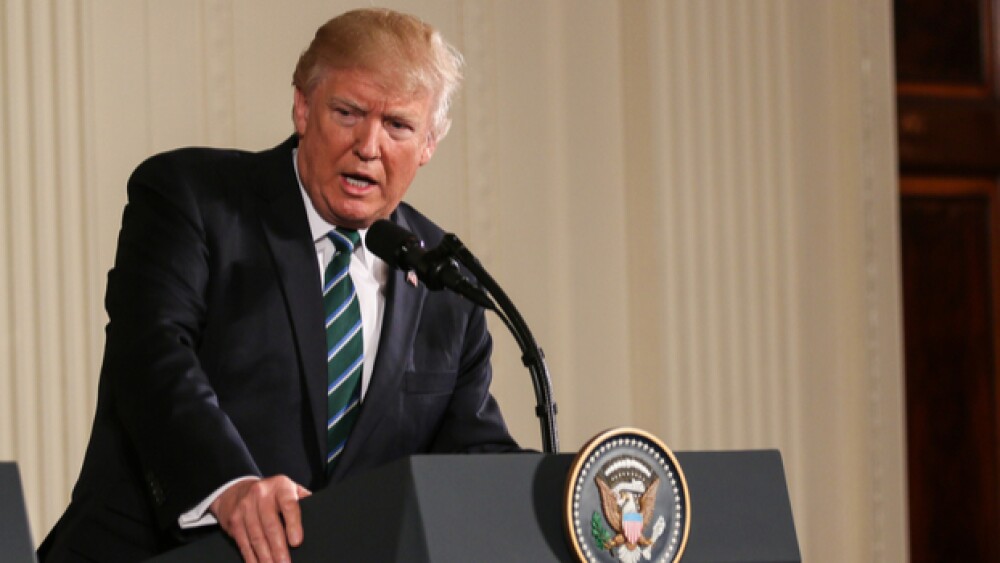The executive order will demand that drugs purchased by the federal government will not cost more than the lowest price paid by other nations.
Nicole S Glass / Shutterstock
In his latest move to drive down the costs of prescription drugs in the United States, President Donald Trump is planning to issue an executive order that will tie the costs of prescription drugs paid for by the federal government to the lowest price paid in other countries.
On Friday, Trump announced a “favored nations clause” which will instruct government agencies buying prescription drugs to only pay the lowest price paid for by foreign countries. “As you know, for years and years, other nations paid less for drugs than we do, sometimes by 60, 70%,” Trump told reporters on Friday, according to a video posted by CNBC.
Last fall, Trump initially announced a price-negotiation plan for Medicare-supported infused and injected drugs that the administration claimed could save $17 billion over five years. Part of that plan also included a “benchmark” for Medicare costs against the pricing of drugs in 16 other nations as part of an international pricing index. Trump made drug pricing a central point of his 2016 presidential campaign, which included the infamous claim that pharmaceutical companies are “getting away with murder” when it comes to the prices the companies charge for medication.
In his latest comments concerning pricing, Trump queried why other nations should pay less than the United States, a criticism long aimed at the pricing of prescription drugs. The U.S. is the top market for drugmakers, in part due to the lack of pricing controls. The U.S. pays more per capita for prescription drugs than any other country in the world. Trump said the new pricing policy will be dictated through an executive order. In his remarks though, he did not specify when that order would be issued, only said that his administration was currently working on it. From the president’s remarks, it is unclear what the total breadth of the executive order would be when it comes to pricing. The Wall Street Journal speculated that the executive order would only cover some drugs, possibly the more expensive ones that treat rare diseases.
The latest action for pricing is only part of a series of programs implemented by the White House aimed at lowering drug costs. Other policies put in place include the requirement that prescription drugs advertised on television must include the list price, which is the price negotiated between manufacturers and pharmacy benefits managers. The list price is typically not the price paid by consumers at their retail pharmacy. The inclusion of list prices on television advertisements is part of the White House’s blueprint for lowering healthcare costs, called American Patients First. The White House plan includes four primary strategies to bring down costs -- boosting competition, enhancing negotiation, creating incentives for lower list prices and bringing down out-of-pocket costs. Requiring the inclusion of the list price is seen by the White House as a means of making drug prices more transparent and as a way of giving patients some leverage with their prescribers over medication they may require.
Last month, Trump issued an executive order that requires insurers, doctors, hospitals and others in the healthcare industry to provide information about the negotiated and often discounted cost of care. At the time the order was signed, the administration said the goal of the executive order is to arm patients with pricing data so they will have the necessary information to provide them with greater control over health care costs.





